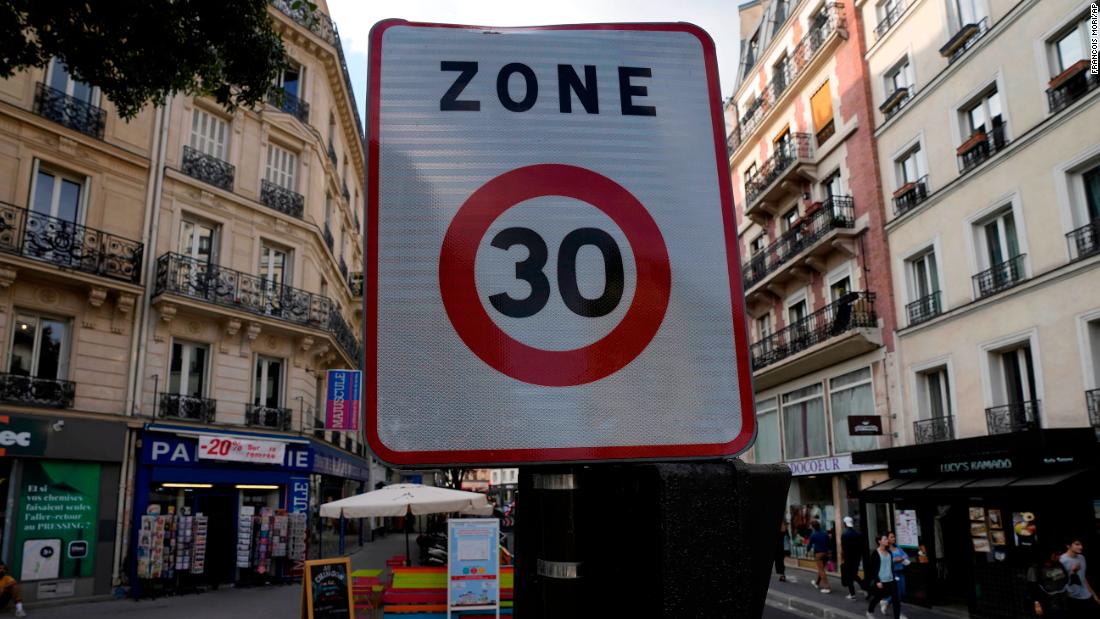
This will depend in part on whether drivers are so fed up with the speed limit that they choose to travel in other ways.
To further deter drivers from bringing vehicles into the city, authorities are also removing 60,000 of Paris ’144,000 parking spaces on public roads to make them“ more accessible to everyone ”and will make better use of underground parking. Some sidewalks will be widened, allowing more space for walking, as well as trees and plants, and new bike lanes will be installed.
According to a Paris city council poll, 59% of the city’s residents were in favor of the new limit, which came into force on Monday, but opposition was much greater in the larger Ile-de-France region. , with 61%.
A delivery driver trapped in traffic on Monday said the change had been “terrible”.
“With the deliveries, it’s terrible. We don’t have time. I was in all the traffic jams. We don’t have time,” he told CNN affiliate BFMTV, which did not name him.
Another driver said it was as if car drivers were traveling in “electric scooters,” calling the rule “crazy.”
Deputy Mayor of Paris David Belliard, in charge of transport, told BFMTV that he hoped the limit would stop driving more people and would further encourage walking, use of public transport and bicycles.
On Sunday, he posted a tweet to divert online criticism of the new rule.
Noise pollution will also be halved, they calculate, saying traffic noise had negative physical and psychological impacts, including stress, insomnia and depression.
The rule change comes after a public consultation held in October and November 2020, in which more than 5,700 people participated.